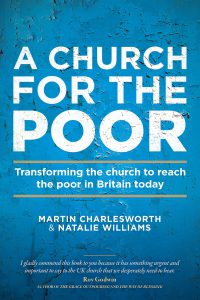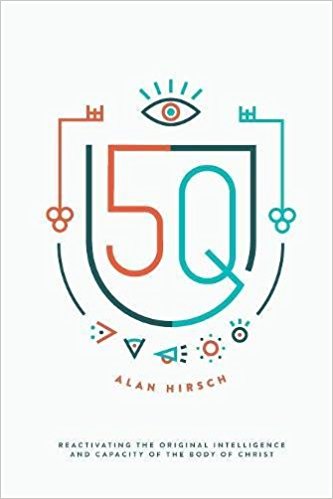Q&A: Should we pray for blessings for unbelievers?
Sarah A writes:
Hi Will,
Should we as individuals or churches offer prayer for unbelievers for God to intervene in day to day challenges or bring his blessings on a situation?
I completely appreciate that the motivation to offer this is loving and evangelistic and that God of course can use these interactions for his glory.
But is it right to be offering this kind of prayer? It seems to be offering prayer for what God can do rather than seeking him for who he is. Clearly an unbeliever’s first and greatest need is to come to repentance and find Jesus. To me, offering prayer for problems or asking for blessings seems to put God in the role of fixer with the Christian acting as an intermediary therefore bypassing the need for a relationship between God and the one who wants prayer. But we know that only Jesus is the intermediary between man and God and the promise of Hebrews 4:14 – 16 is for Christians who now have access to the throne of God to receive mercy and grace to help us in our time of need.
1 John 5:14 – 16 tells us that if we ask anything according to God’s will, he hears us. So does God hear these kind of prayers?
[This is a Q&A question that has been submitted through this blog. You can submit a question (anonymously if you like) here: http://briggs.id.au/jour/qanda/]
Thanks Sarah,
Great question. In summary, you ask “Should we pray for unbelievers for God to intervene or bring blessings?” In summary, my answer is “Yes.” Does he “hear these kind of prayers”? Yes, but as with all pastoral encounters, praying for someone in this way comes with a responsiblity to exercise care, faithfulness, and discernment.
There’s a lot going on behind this answer, though, and I’d like to unpack it if I may. The first thing to consider, although it may seem like a simplistic question, is this:
What do we mean by “unbeliever” anyway?
I’m not sure I actually like the term “unbeliever” as it’s a little denigrating: everybody believes in something after all. But clearly we do need to grasp some sort of distinction between those who do and do not believe those things that Paul tells us are of “first importance”, “that Christ died for our sins according to the Scriptures, that he was buried, [and] that he was raised on the third day.” We are at least talking about those who do not have a personal faith in Jesus.
That’s simple enough. If we start there, it is biblical example that leads us to conclude that praying for someone who doesn’t have this faith is not only permissible, but it is often desirable.
Throughout his earthly ministry Jesus himself intervened in the lives of many who had not yet put their faith in him in a formal sense. Similarly, in Matthew 10, he commissions the disciples to go and “freely give” just as they have “freely received” and in practice that means that they are to “heal those who are ill, raise the dead, cleanse those who have leprosy, drive out demons.” I think that puts us in the ballpark of “praying for God to intervene in day to day challenges and to bring his blessings on a situation”, to use your words.

I find the example of Peter and John in Acts 3 particularly informative. Here the lame man does not ask for salvation, not even healing; he is simply asking for money. Peter and John do not take the opportunity to evangelise to him (although the end result has the man dancing in praise to God), rather we get the following famous line (emphasised below):
When he saw Peter and John about to enter, he asked them for money. Peter looked straight at him, as did John. Then Peter said, ‘Look at us!’ So the man gave them his attention, expecting to get something from them. Then Peter said, ‘Silver or gold I do not have, but what I do have I give you. In the name of Jesus Christ of Nazareth, walk.’ Taking him by the right hand, he helped him up, and instantly the man’s feet and ankles became strong.
This phenomenon appears to be writ large in Acts 5:12-16 where we read that “a great number of people would also gather from the towns around Jerusalem, bringing the sick and those tormented by unclean spirits, and they were all cured.” None of this appears to depend on those involved having a pre-existing state of belief in Jesus. In fact, usually the intervention and intercession leads to belief.
We could just about leave it there, but let’s push a little deeper.
That push begins with something of a counterpoint to what I’ve just suggested: You see, one problem in using the examples I have is that all those who are being blessed are, in some way, already part of the people of God. That is, they are members of the Jewish people, under the covenant promises of God. The miracles, blessings, and interventions that we see being ministered through Jesus and his disciples are not so much prayers for unbelievers, but a demonstration that God’s promises to his people have been fulfilled.
This, itself, is gospel: The kingdom of God is here, the blessings of the covenant are fulfilled in Jesus; enter into the hope of your people. Or simply, in application, “In the name of Jesus Christ of Nazareth, walk!”
In some sense, then, these blessings and interventions are “in-house.” The covenant blessings come to God’s people when the covenant is obeyed, (just consider Deuteronomy 28 if you have the time). It is no surprise, then that these blessings of healing, restoration, and divine intervention are made manifest through the faithful obedience of Christ, especially in his death. The blessings now flow, through him, to the “lost sheep of Israel”. Examples such as the healing of the lame man in Acts 3 are not so much about “praying for unbelievers who are on the outside” but “demonstrating that the gospel is true on the inside.”
But that doesn’t mean I’ve contradicted myself. What we’ve done is dug down to the roots of the gospel, and found them grounded on the covenant promises of God. So let’s go back to that covenant:
What is at the heart of the promises of God?
Look at the covenant that God makes with Abram (later called Abraham) in Genesis 12:
‘I will make you into a great nation,
and I will bless you;
I will make your name great,
and you will be a blessing.
I will bless those who bless you,
and whoever curses you I will curse;
and all peoples on earth
will be blessed through you.’
Here’s the impetus: Whatever blessing comes to God’s people, it is to flow out into the world. Whatever blessing we have in Christ, we are to share it.
So perhaps we should turn to a different biblical example to interact with your question. Consider something like Jesus’ response to the Canaanite woman in Matthew 15 as he heals her daughter. This example is particularly telling: Both the woman and Jesus make a point about blessings for those who are currently outside of covenant grace. The dialogue about Jesus only going to the “lost sheep of Israel” and whether or not she might “eat the crumbs that fall from the table” serves not to diminish but amplify the faith she has exhibited outside of the fold. She was not yet been brought into the fold, so to speak, but the blessings can and do flow to her. Her prayer was heard and it was answered. Jesus is simply doing what the promises of God demand; sharing the blessing.
So our very foundation, the grounding of God’s words of promise that sets the shape of who we are in Jesus, shifts us to look outwards. Seeking the blessing of those who are “outside” in some sense is not just one possible outworking of our own belief and covenant inclusion, it’s essential to its very character. We bless because we are blessed, we freely give because we have freely received. We, who are in Christ, are to act as he acted, and continues to act through his Spirit in us.
To pray for a person who is not yet “in Christ” doesn’t usurp Christ’s role as an intermediary, it exercises it, as long as we pray according to his character. We can only pray from the basis of the covenant blessing we have in him, i.e. we can only pray in his name. To offer to pray for someone in their circumstances, is therefore an act that reveals Jesus more than it hides him. To pray for someone in their circumstances is to act according to the promises that God has fulfilled in Jesus, not against them.
That’s the foundation I’m coming from, in answering your question. There are, however, a couple of things to tease out:
Firstly, you write “It seems to be offering prayer for what God can do rather than seeking him for who he is. Clearly an unbeliever’s first and greatest need is to come to repentance and find Jesus. To me, offering prayer for problems or asking for blessings seems to put God in the role of fixer with the Christian acting as an intermediary therefore bypassing the need for a relationship between God and the one who wants prayer.”
I think I get what you mean, but excuse me if I miss the mark.
Clearly, our longing for people to share in the blessings of God is ultimately met if they, too, become a part of the covenant people; if they turn to Jesus in faith, and receive forgiveness, renewal, and all the other things. But we cannot separate prayer for other forms of blessing from this. If comfort, healing, or divine intervention comes from answered prayer, this is more likely to draw people to the ultimate blessing rather than hide it. To separate prayer for salvation from prayer for blessing in general creates a false dichotomy.
But secondly, your concerns are valid, and should remind us to be careful in how we pray. In some way, this is why I bother to go to some of the depths that I do in answering these sorts of questions. If we pray as if “God is a fixer” then that is the “gospel” that we will proclaim in those prayers; and, especially in the event that the “fix” doesn’t come as we thought it might, we might hinder people’s view of God.
But if we pray from an understanding of who we are in Christ, covered by his grace, filled with his spirit, inheriting his blessing, that is what we reveal. We know how we pray for ourselves and for our fellow brothers and Christians, with confidence in God’s character, with an understanding of how he works all things together for good, with an assurance of God’s love even in the midst of suffering. We pray from the same place when we pray for those who don’t share this understanding, and we must be additionally careful to ensure that this understanding, and our meaning, is clear.
I’ve seen it done badly. I’ve also seen it done well. I’ve been to big events where it’s all about the guru fixing things on some messiah’s behalf. I’ve also been to big events where sweet prayer and intercession has been offered, and things were gently and clearly explained along the way; the heart of God was spoken of, shared, manifested.
In short, wisdom is required. Whether it be a “Healing On The Streets” ministry, or an opportunity that comes from a conversation with a friend, as we come to our Father on their behalf, we need to ensure that our words help them to come along with us.
In the end, that’s the sweet childlike dynamic on which it all rests. We have found the one who is our, Saviour, Lord and Leader, who has the words of eternal life, the blessings of eternity. In him we are caught up into our Creator. This is a precious, beautiful, sacred thing. It’s not ours to hide, but we share it carefully, with wonder, joy, and delight. And who knows what our Lord will do?











